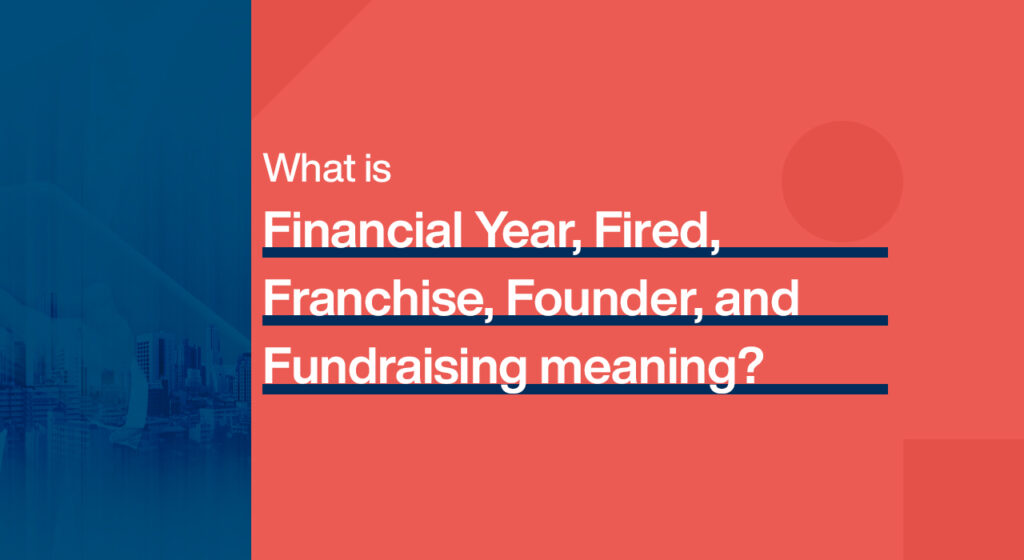Financial Year:
A financial year, also known as a fiscal year, is a period of 12 months used by businesses and organizations for financial reporting and budgeting purposes. It is a way to divide the accounting records of a business into manageable periods, typically corresponding to the calendar year or the tax year.
In many countries, the financial year begins on January 1 and ends on December 31. However, the start and end dates of the financial year can vary depending on the country and the specific organization. Some businesses and organizations choose to have a financial year that aligns with the calendar year, while others may choose to have a financial year that starts and ends on a different date.
For example, a business may choose to have a financial year that runs from April 1 to March 31. This is common in countries like India, where the fiscal year corresponds to the government’s financial year. In these cases, the business would prepare financial statements and budgeting documents for the period from April 1 to March 31 each year. Overall, the financial year is an important concept for businesses and organizations because it helps them track their financial performance and plan for the future. It is a key tool for financial management and decision-making.
Fired:
To be fired means to be dismissed or let go from a job, either temporarily or permanently. It is a term that is typically used when an employee is terminated by their employer for reasons such as poor performance, misconduct, or violation of company policies.
In many cases, an employee who is fired is given notice before their dismissal, either in the form of a verbal warning or a written warning. Depending on the circumstances, an employee may also have the opportunity to appeal their dismissal or to negotiate a severance package. It’s important to note that being fired is different from quitting a job. When an employee quits, they are choosing to leave their job voluntarily. When an employee is fired, they are dismissed by their employer. Being fired can have negative consequences for an individual’s employment history and may make it more difficult for them to find a new job in the future.
Franchise:
A franchise is a business model in which a company (the franchisor) grants the right to use its brand, products, and business systems to another individual or company (the franchisee) in exchange for a fee. The franchisee operates their own business using the franchisor’s established methods and systems and often receives support and assistance from the franchisor in the form of training, marketing, and ongoing support.
Franchising is a popular way for businesses to expand their operations, as it allows them to grow rapidly without incurring the costs and risks associated with starting a new business from scratch. For the franchisee, the benefits of joining a franchise include the ability to operate their own business using a proven business model and a well-known brand, as well as the opportunity to receive support and assistance from the franchisor.
There are several types of franchises, including single-unit franchises, where the franchisee operates a single location; multi-unit franchises, where the franchisee operates multiple locations; and area development franchises, where the franchisee has the right to develop a certain geographic area. Overall, franchises offer a way for both franchisors and franchisees to achieve their business goals and realize the benefits of working together.
Founder:
A founder is a person who starts a business or organization. The term is often used to refer specifically to the person or people who establish a company and are responsible for its initial development and growth. Founders are typically involved in the early stages of a business, including developing the concept, assembling a team, and securing funding.
Founders often play a key role in shaping the direction and culture of a business. They may also be responsible for making key decisions about the business, such as developing a business plan, setting goals, and implementing strategies for growth.
In addition to starting a business, the term “founder” can also be used to refer to the person or people who establish a non-profit organization, social movement, or other types of entity. In these cases, the founder’s primary goal is often to create something that serves a social or public good, rather than to make a profit. Overall, founders are important figures in the history and development of a business or organization, as they are responsible for bringing it into existence and setting it on the path to success.
Fundraising:
Fundraising is the act of collecting money or other resources to support a cause, project, or organization. It involves soliciting donations or other forms of support from individuals, businesses, or other organizations in order to raise funds for a specific purpose. Fundraising can be done by non-profit organizations, political campaigns, and even for-profit businesses. There are many different approaches to fundraising, including direct mail campaigns, online fundraising platforms, crowdfunding, and in-person solicitations. The goal of fundraising is to collect enough money or resources to support the cause, project, or organization and to achieve its goals.

